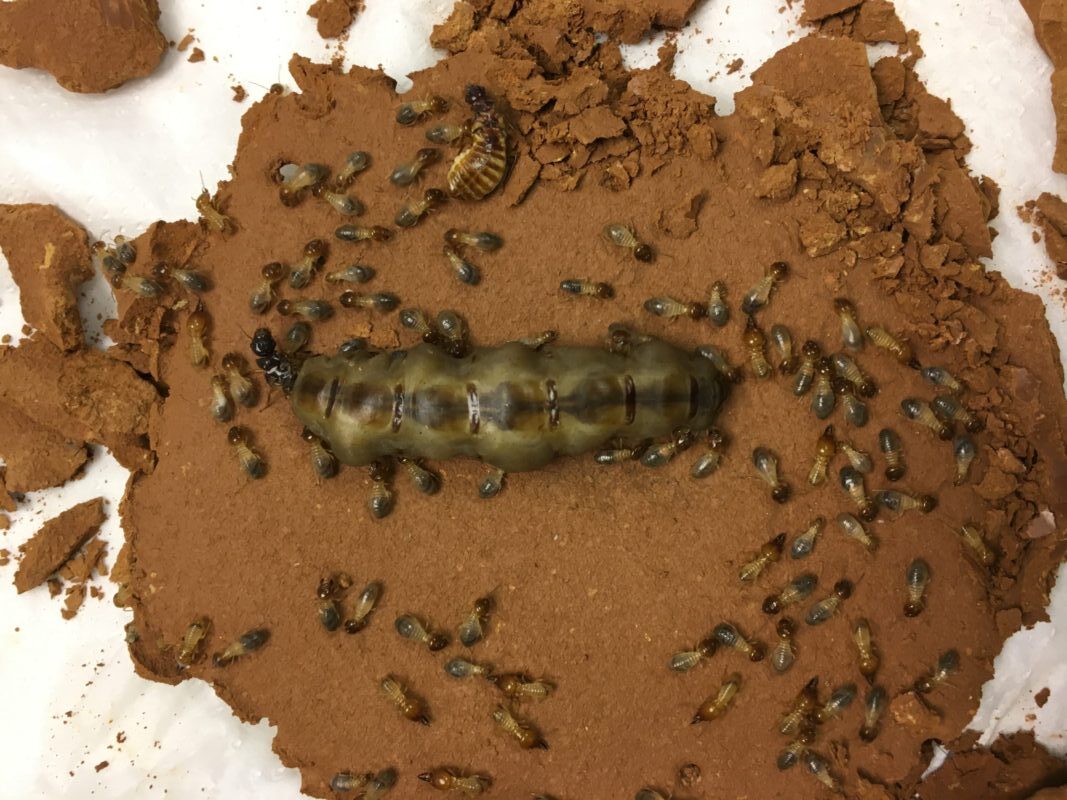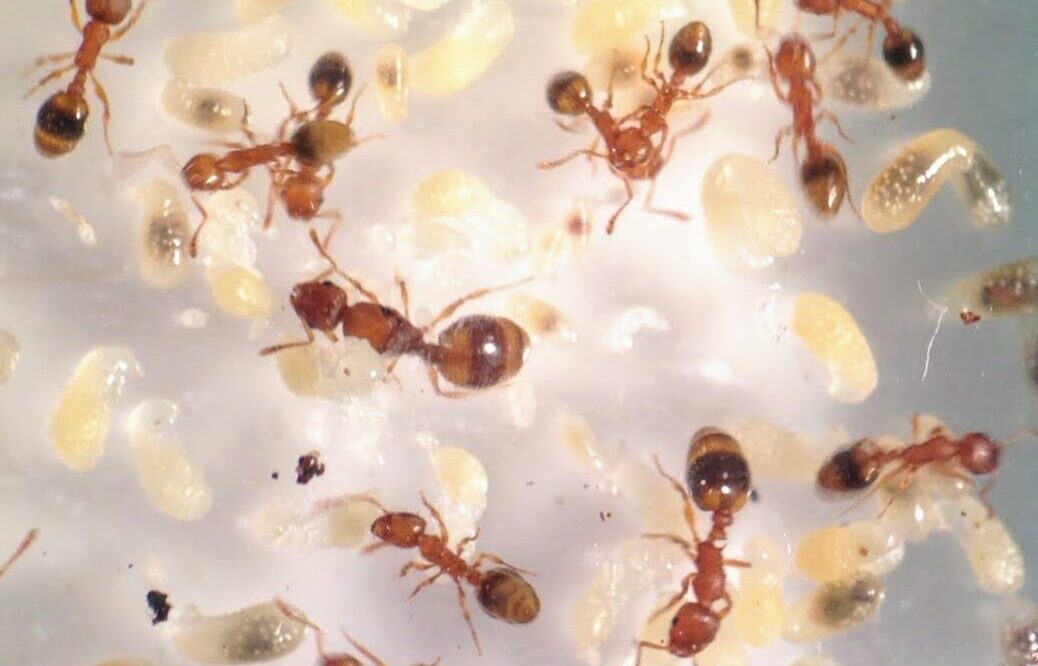Flourishing recent comparative studies on senescence have revealed an uncovered diversity across the tree of life of the shapes of the age trajectories of mortality (actuarial senescence) and to a lesser extent of reproduction (reproductive senescence). Evolutionary theories have been called up to explain why some species suffer from positive senescence while others benefit from […]
Lire la suite / Read more
Reproductive and worker castes of termites differ greatly in their morphology and behavior but also in their fertility and longevity. Kings and queens of the highly social termite, Macrotermes natalensis, live for decades, with the queen laying thousands of eggs per day. Workers are sterile and only live a few weeks. In our HFSP project, we investigated the regulatory mechanisms involved in generating such diverse phenotypes. Our previous results indicate that well-regulated transcription allows reproductive castes to overcome simultaneously several well-known hallmarks of aging.
Lire la suite / Read more
This study unraveled the impacts of accelerated aging pace as a corollary of climate-driven population decline. We found transgenerational accumulation of telomere shortening implying that offspring were already born “old”. We suggest that this process may exacerbate across generations, leading to an aging loop in the population. This model posits that telomere dynamics should represent a molecular biomarker of extirpation, and likely a central cause and promising solution for future biodiversity managing actions.
Lire la suite / Read more
Kings and queens of social termites can live for decades, while queens sustain a nearly maximal fertility. We found that they defy aging by multiple gene expression and metabolic changes, while permitting extreme fertility in queens.
Lire la suite / Read more
As part of a partnership with the City of Paris, several members of the laboratory (Basile Finand, Céline Bocquet, Pierre Federici, Thibaud Monnin et Nicolas Loeuille (“EERI” Team of “DCFE” Department and “ESEAE” Team of “EcoEvo” Department) sample the soil fauna and in particular the ants in the Parisian green spaces. To popularize and explain this […]
Lire la suite / Read more
Great tits living in cities are genetically different from great tits in the countryside. This is what researchers have found in a unique study, where they examined populations of great tits in nine large European cities.
The researchers compared the city bird genes with the genes of their relatives in the countryside. It did not matter if the great tits lived in Milan, Malmö or Madrid: in order to handle an environment created by humans, the birds evolved in a similar way.
Lire la suite / Read more
Team news Team publications Team members Our research aims to understand the ecological and evolutionary causes of phenotypic variability. We investigate the consequences of this variability for demographic processes which depend on environmental conditions. We use different research models to address major topics (the common lizard, annual killifish, springtails), in the lab, in mesocosms and […]
Lire la suite / Read more
Urban and forest colonies of the ant Temnothorax nylanderi respond differently to pollution?
Lire la suite / Read more
“Here, we used 37 years of mark-recapture data in two nearby habitats inside a meadow viper Vipera ursinii population to quantify life expectancies, generation times and the shape of actuarial and reproductive senescence.”
Lire la suite / Read more
We were saddened to learn on this the 1st day of September that our colleague and friend Christian Peeters, CNRS senior scientist at iEES-Paris, had passed away.
Lire la suite / Read more









